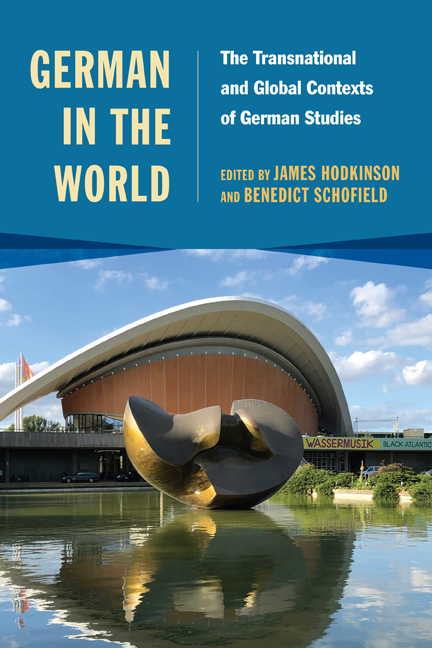7 - German in a South African Context: From Colony to Decolonization
Published online by Cambridge University Press: 06 October 2020
Summary
IN 2017, THE BESTSELLING AUTHOR of espionage and thriller novels John le Carré gave a speech at an award ceremony for German teachers at the German Embassy in London entitled “Why We Should Learn German.” He recalled his early career as a German teacher and his love for the language, still trying to explain to himself “why it was love at first sound.” He fondly remembered his first teacher, Mr. King, who despite the anti-German propaganda during World War II, inspired his “little class with the beauty of the language, and of its literature and culture.” Le Carré then also explained why he learned and taught the language:
The decision to learn a foreign language is to me an act of friendship. It is indeed a holding out of the hand. It's not just a route to negotiation. It's also to get to know you better, to draw closer to you and your culture, your social manners and your way of thinking. And the decision to teach a foreign language is an act of commitment, generosity and mediation.
John le Carré echoes my personal enthusiasm for German and the reasons why I chose to teach the subject in South Africa at a time when foreign languages seem to have lost their appeal at tertiary institutions—small as it was in the past.
Moreover, in South Africa, German as a subject at tertiary institutions has the dubious status of claiming the longest history on the African continent because of its inextricable link to the colonization of the Cape, and thus to colonialism as practiced first by the Netherlands, then by the British Empire, and finally as practiced in the apartheid era. The end of the latter era is marked by two significant turning points that changed the political and social landscape in Southern Africa. First, the former German colony South West Africa became independent Namibia in 1990. It had been mandated by the League of Nations to the Union of South Africa in 1915 and was regarded as a fifth province by the Republic of South Africa despite the abolishment of the mandate by the United Nations in 1966.
- Type
- Chapter
- Information
- German in the WorldThe Transnational and Global Contexts of German Studies, pp. 136 - 152Publisher: Boydell & BrewerPrint publication year: 2020

